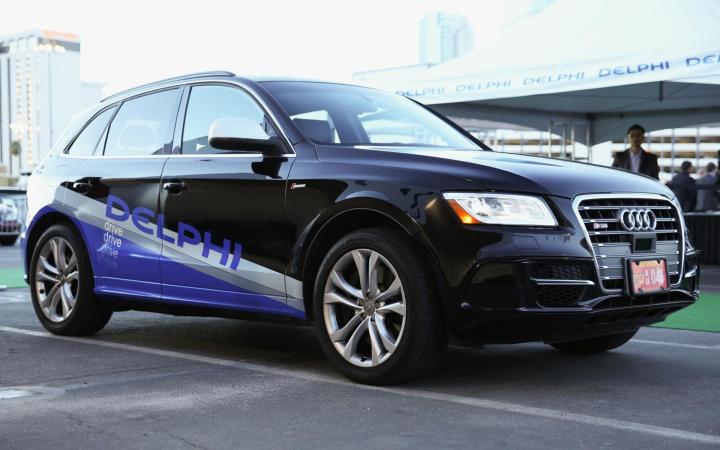
Delphi was selected by the Singapore Land Transport Authority for Autonomous Vehicle Mobility-on-Demand Program. The program is a strategic partnership aimed at implementing autonomous mobility concepts using a fleet of self-driving cars and cloud-based mobility-on-demand software. The Delphi test will be in a business park designated as the city’s Autonomous Vehicles Test Bed.
Delphi will use six self-driving Audi SQ5s in the program. The cars in the three-year test will travel 8 kilometers (5 miles) on three fixed routes. At first, drivers will be in the cars, but as the project continues, both drivers and steering wheels will be excluded. The overall plan is to introduce commercial driverless taxi service to Singapore by 2022.
Singapore is attempting to increase mass-transit ridership and cut traffic and vehicle emissions. The self-driving cars would fit in this effort by providing “first mile” and “last mile” solutions to transport passengers between mass transit stations and their homes and workplaces.
Delphi says its AMoD software solution is “vehicle agnostic” and can be used with passenger cars, buses, commercial vehicles, electric vehicles, and “purpose-built mobility pods.” In the future, Delphi plans to participate in additional AMoD pilot programs in North America and Europe. The promise of autonomous vehicles and cloud-based on-demand services has implications for more efficient vehicle sharing in cities and suburbs, autonomous bus and taxi services, and long-distance truck logistics and platooning.
“We are honored to partner with the Singapore LTA on advancing innovative mobility systems, which will put Singapore at the forefront of autonomous vehicle adoption,” said Delphi’s President and CEO Kevin Clark. “This is a great recognition of Delphi’s leadership in advanced safety technologies, automated software, systems integration, as well as our ability to drive these mobility solutions forward for our customers.”
Editors' Recommendations
- Tesla hopes full self-driving beta will be out globally by the end of 2022
- How a big blue van from 1986 paved the way for self-driving cars
- Waymo’s self-driving cars can’t get enough of one dead-end street
- Tesla issues stark warning to drivers using its Full Self-Driving mode
- The future of transportation: Self-driving cars? Try self-driving everything




